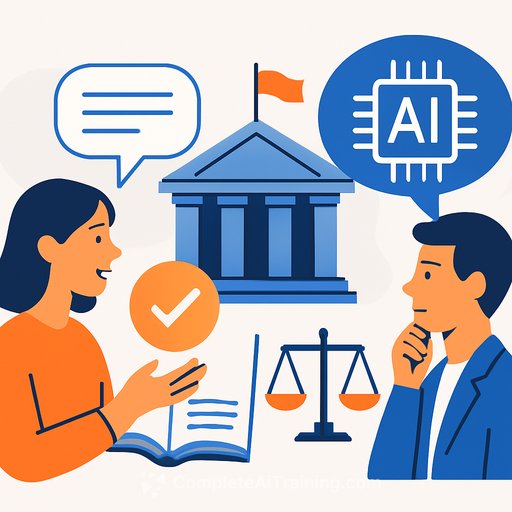SUNY updates general education: new civic discourse requirement and AI-focused information literacy
Beginning next fall, SUNY campuses - including Binghamton University - will roll out a new civic discourse requirement and update information literacy to include ethical use of AI. The changes build on the system-wide general education framework that took effect in fall 2023 and applies to all SUNY undergraduate programs.
The framework calls for coursework across 12 knowledge and skill areas and core competencies. Since 2023, new students have also needed critical thinking and information literacy; the revision strengthens how AI is addressed within that literacy outcome.
What's changing
- Civic discourse (new): Courses will develop skills for participation in civic life and productive dialogue - with an emphasis on respectful, reasoned exchanges.
- Information literacy (revised): Students will evaluate sources and learn to use AI ethically, with attention to bias, provenance, accuracy, and transparency.
The SUNY General Education vision emphasizes essential skills, interdisciplinary ways of knowing, and the values of an engaged 21st-century citizen. This update keeps that promise current as AI becomes part of everyday academic work.
How we got here
SUNY leadership signaled a review of general education in May 2024. An expert group drafted changes in June; after systemwide feedback, the SUNY Board of Trustees approved revisions in December and announced them in January.
System leaders underscored two priorities: elevating discourse and helping students use AI responsibly as they assess information. SUNY also plans to expand the Empire State Service Corps to create more paid civic and service opportunities for students.
Why this matters for educators
AI is already in student workflows. A Digital Education Council study found 86% of students use AI, with 54% using it weekly and nearly one in four using it daily. Policies and instruction need to meet that reality - not ignore it.
The revised outcomes give faculty cover and clarity to teach AI source evaluation, citation, data provenance, prompt transparency, and acceptable use. They also encourage assessment practices that separate recall from reasoning and process.
Action steps for departments and faculty
- Map current courses to the new civic discourse outcome and the revised information literacy outcome; identify gaps by program and level.
- Update syllabi with clear AI use guidelines (permitted tools, disclosure rules, citation expectations, and limits by assignment type).
- Refresh assignments to foreground process: annotated prompts, versioned drafts, reflection on tool choice, and source-tracing exercises.
- Adopt assessment rubrics that separate idea quality, evidence quality, and tool transparency; require students to submit AI interaction logs when allowed.
- Provide faculty development on AI bias, hallucination risks, copyright, privacy, and data security; create quick-reference guides for TAs.
- For civic discourse, embed deliberation norms, role-play or case discussions, and community-partner projects; align with the Empire State Service Corps where feasible.
- Document evidence of learning with calibrated samples and shared rubrics to ease program review and transfer articulation.
Campus support in motion
Binghamton's Center for Learning and Teaching is already guiding instructors on whether to keep or add the "I" (information literacy) designation. As Vice Provost for Undergraduate Education Donald Loewen put it, the change highlights how students must account for "multiple factors" when evaluating how emerging technologies like AI shape the information environment.
Resources
- SUNY General Education framework - outcomes, categories, and policy details.
- Curated AI courses by job role - options to support faculty upskilling and course design.
What to watch in year one
- How campuses operationalize the civic discourse outcome across disciplines, not just in political science or communication.
- Consistency in AI use policies across sections and programs, including academic integrity workflows and reporting.
- Availability of "I" designated courses that meet the revised outcome, especially at the 100-200 level for transfer-friendly pathways.
- Faculty workload for redesign and assessment, and whether campuses provide development time or stipends.
- Student support: library instruction on AI and sources, writing center guidance on disclosure and citation, and TA training.
Bottom line
This is a practical update. SUNY is asking every campus to teach students how to engage one another constructively and use AI responsibly. With clear policies, refreshed assignments and shared rubrics, educators can meet the requirement without reinventing their courses - and help students build habits they'll use long after graduation.
Your membership also unlocks:






